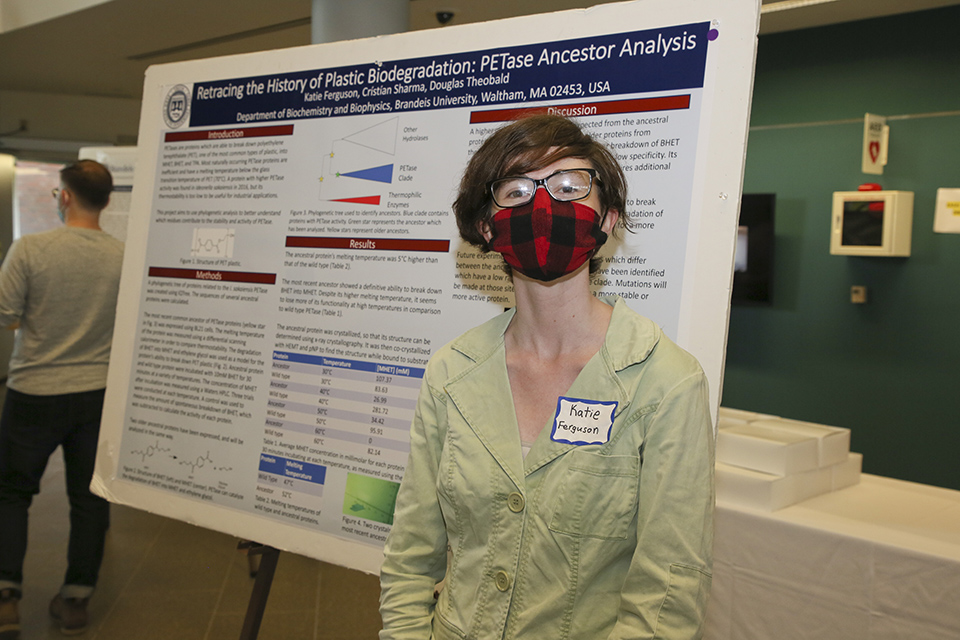Katie Ferguson
M.R. Bauer Foundation Summer Science Research Fellow
Theobald Lab, Department of Biochemistry
Brandeis University

Retracing the History of Plastic Degradation: PETase Ancestor Analysis
The PETase protein from the bacterium Ideonella sakaiensis is able to break down PET plastic into its monomers. It is too slow and thermally unstable for industrial use, but an examination of its evolutionary history could provide insight about its function or result in a more useful PETase protein. The most recent ancestor of a group of proteins with PETase activity was analyzed. Its melting temperature was increased, and its activity toward PET appeared to be decreased in comparison to wild type. The ancestral protein was crystallized, and the resulting crystals will be used to determine its structure, both while isolated and while a substrate is bound. In addition, two ancestral proteins which are earlier in PETase's evolutionary history have been expressed and will be analyzed in the same manner. If any of these proteins have sufficiently high melting temperature and activity, they may provide an alternative solution for plastic waste. In addition, the information that is found about the abilities of all the ancestors will also indicate what residues may play a vital role for PETase.Personal Statement and Pandemic Reflection
This summer, I gained valuable experience expressing and analyzing proteins. I also had the opportunity to practice presenting findings to fellow scientists. These skills will be useful in my future work in the sciences. While becoming more familiar with lab procedures, I gained independence. I am far more capable of directing myself and finding avenues for further investigation. Interacting with other scientists daily has been a vital part of my experience in the lab. I am so grateful for the opportunity to observe their work and always have someone to answer my many questions.The Covid-19 pandemic changed what I was able to accomplish during the summer of 2020. All my work had to be done online, and the project was delayed as a result. Fortunately, working in the lab in-person this summer has allowed me to complete some of the experiments which had been postponed.